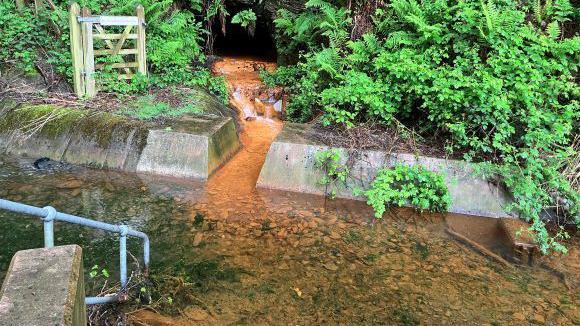Plants helping to halt old mines polluting rivers
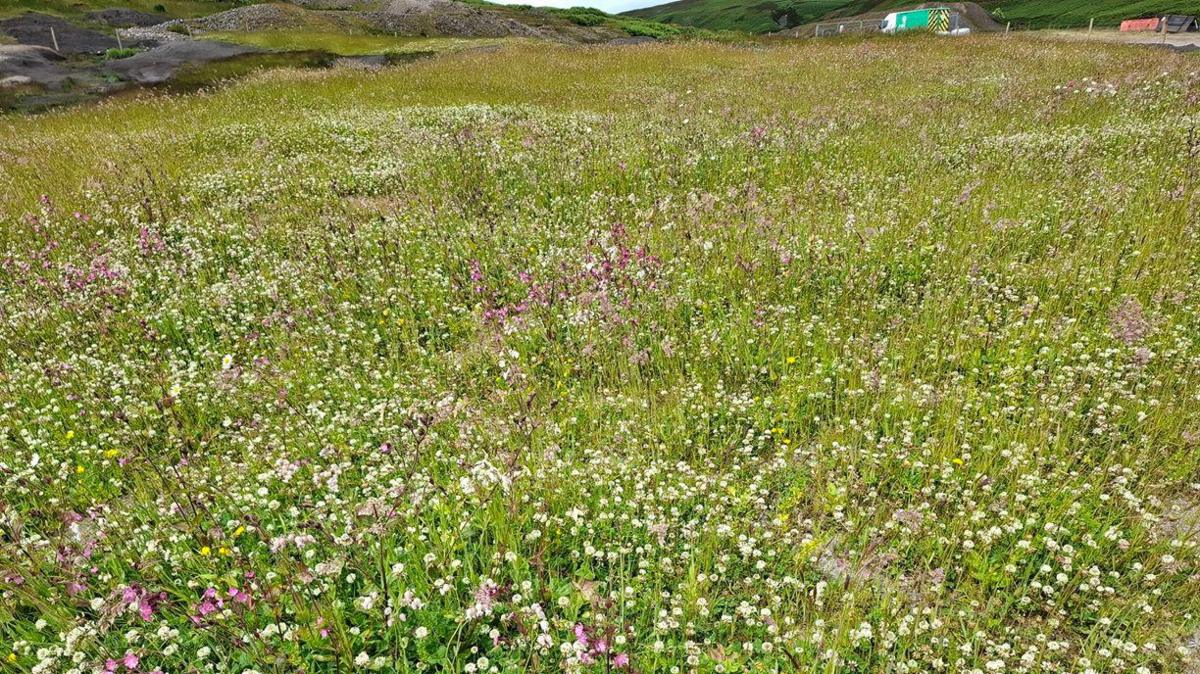
The project has increased biodiversity around the rivers, organisers say
- Published
Acres of greenery have been planted to reduce the pollution of rivers by abandoned mines.
The £900,000 project saw vegetation plots created above Middleton-in-Teesdale to prevent metals being washed out of former mines next to tributaries of the River Tees.
Project organisers say the plants on the three hectares (7.4 acres) of land will mean less rain water will wash over the mine waste, reducing erosion and the amount of metal washed into the becks.
Land agent Joe Robinson said there had been a "significant improvement" to the land on the Raby Estate and it had "turned ground that was devoid of life and activity into one that is now thriving".
The plots are next to Great Eggleshope Beck, Little Eggleshope Beck and Marl Beck in Upper Teesdale.
According to the Environment Agency, about 200km (124 miles) of rivers in Teesdale and Swaledale are polluted by metals released from long-abandoned metal mines.
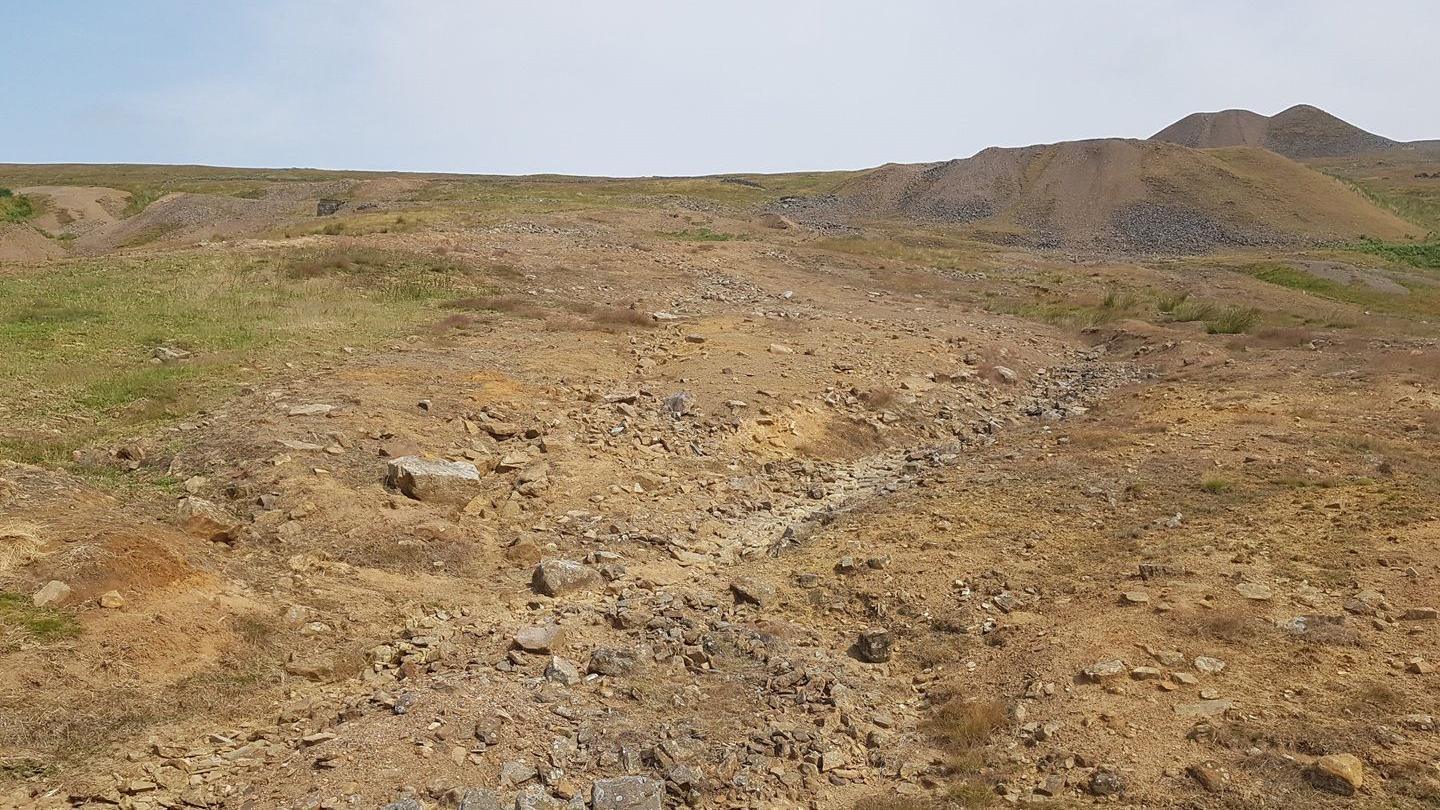
Marl Beck before the project started in June...
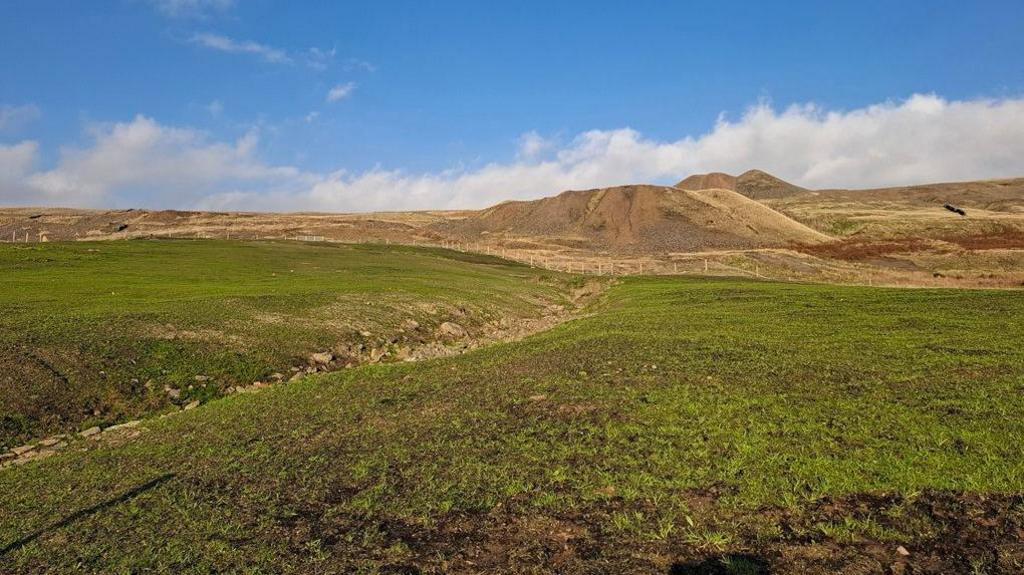
...and after its completion
The project was led by the Yorkshire Dales Rivers Trust and the Water and Abandoned Metal Mines (WAMM) programme, working with the Tees Rivers Trust, and primarily funded by the Department for the Environment, Food and Rural Affairs (Defra).
Programme lead Dr Hugh Potter said the project, which started in June, would improve water quality "as well as enhancing biodiversity".
Landowners and tenant farmers have been involved to help bring around the changes to the local environment.
Mr Robinson said previously barren ground was now full of "lush, green grasses which have grown in such a short project time frame".
He added it was "wonderful to see the area frequented by bird and insect species as they forage for food" and the project had "helped to demonstrate that these waste areas can play a positive role in nature once again".
Follow BBC Tees on X,, external Facebook, external, Nextdoor and Instagram, external. Send your story ideas to northeastandcumbria@bbc.co.uk.
Related topics
More stories from the BBC
- Published8 May 2024
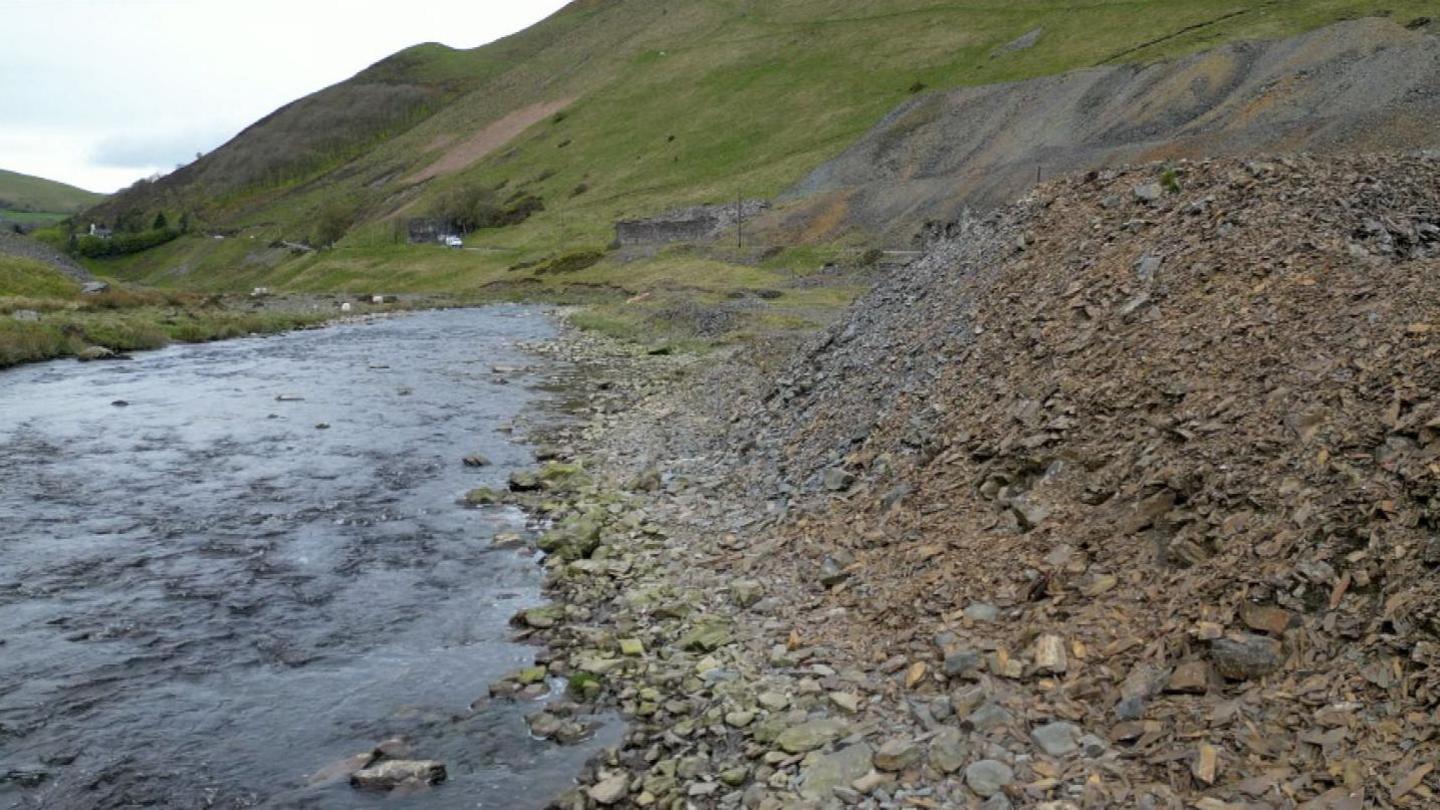
- Published17 May 2024
